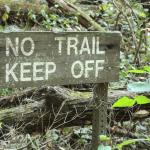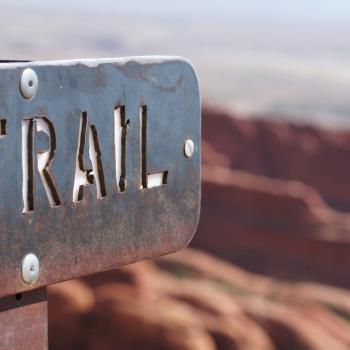
Our faith journey often leads us to think of “spiritual” things, like reading the Bible or praying more. When people asked John the Baptist, “What should we do?” he answered in very practical terms – and so should we!
Scripture:
Genesis, chapters 6-8; Luke, chapter 3
Luke 3:7-14 (CEB):
Then John said ot the crowds who came to be baptized by him, “You children of snakes! Who warned you to escape from the angry judgment that is coming soon? Produce fruit that shows you have changed your hearts and lives. And don’t even think about saying to yourselves, Abraham is our father. I tell you that God is able to raise up Abraham’s children from these stones. The ax is already at the root of the trees. Therefore, every tree that doesn’t produce good fruit will be chopped down and tossed into the fire.”
The crowds asked him, “What then should we do?” He answered, “Whoever has two shirts must share with the one who has none, and whoever has food must do the same.”
Even tax collectors came to be baptized. They said to him, “Teacher, what should we do?” He replied, “Collect no more than you are authorized to collect.” Soldiers asked, “What about us? What should we do?” He answered, “Don’t cheat or harass anyone, and be satisfied with your pay.”
Observations:
What Should We Do?
All of us face challenges at various times in our lives. Most of the time, the challenges come from outside ourselves. This is not surprising; nobody likes change! Eventually, though, we come to recognize the need for change. Perhaps our circumstances deteriorate, and we decide we can’t continue down the same path. At times, we may come to recognize that our behavior, habits, and attitudes are producing negative results. But whatever the motivating factor, we understand that something needs to change.
That prompts the question that the crowds asked John the Baptist: What should we do? John gave them the “big picture.” “John went throughout the region of the Jordan River, calling for people to be baptized to show that they were changing their hearts and lives and wanted God to forgive their sins” (verse 3). “Here we are! Baptize us!” Wasn’t that enough?
John makes it clear that God isn’t looking for “just” a moment’s decision. “Every tree that doesn’t produce good fruit will be chopped down and tossed into the fire.” In other words, baptism itself wasn’t the answer. Instead, baptism was a sign – a public proclamation of repentance and a commitment to turn toward God.
The Crowds: What Should We Do?
The first question comes from “the crowds.” Make no mistake: a lot of people came out to hear John in the wilderness, and many of them responded to his ministry. John was drawing so much attention that some religious leaders came from Jerusalem to see what this was all about (see John 1:19). So after John challenges the people to produce good fruit, the crowds ask, “What should we do?”
John’s answer to the crowds might be a bit surprising: “Whoever has two shirts must share with the one who has none, and whoever has food must do the same.” I’m sure some of the people in the crowd were thinking that John would call them to spend more time praying. Maybe be more faithful in attending worship festivals at the temple. Study the Scriptures more. All of the kinds of things that we think of when we think of strengthening our faith journey.
Nope! John gives them a very basic command: if you have two shirts, share one with someone who doesn’t have one. If you have food, share it with someone who doesn’t. Basic, down-to-earth, daily practice of loving your neighbor as yourself.
Tax Collectors: What Should We Do?
The next question comes from tax collectors. I’m sure tax collectors responding shocked people. Most people hated tax collectors; they represented the power of an oppressive foreign government. The problem wasn’t just that they took money from people; it’s that they took money from their Jewish brothers and sisters for the benefit of Rome. And if that wasn’t bad enough, they were notorious for cheating people – charging them more than required, and keeping the excess for themselves.
The tax collectors’ presence shocked people. John shocked them even more. He didn’t tell them to quit collecting taxes. No call to work against the government. “Don’t collect more than you’re supposed to collect.” In other words, “do your job honestly, and stop cheating people.”
Soldiers: What Should We Do?
The third question came from some soldiers. People hated tax collectors because they were traitors and cheats. they feared soldiers because they were often bullies. Soldiers used their position to coerce people into doing what they wanted. As long as they did their job effectively, their superiors likely looked the other way.
Again, John’s response might be surprising. He doesn’t tell them to quit the army, or to take up arms against the oppressive government. “Don’t cheat or harass anyone, and be satisfied with your pay.” This too is very basic, day-to-day stuff. Do your job; be content with your pay; don’t take advantage of people because of your position.
Application: What Should We Do?
I’m not a soldier or a tax collector. (Although as an attorney, I understand what it’s like for people to have a negative view of your profession.) But all of us, regardless of profession, are part of “the crowd.” John’s call to the crowd is a call to us. I think it’s very instructive to note that John’s responses to all of the questions relate to material goods. If you have an extra shirt, or food, share with one who has none. Don’t collect more than you are authorized. Don’t cheat anyone, and be satisfied with your pay.
God and Money
Many people outside the church (and perhaps more than a few inside) suspect that churches “are only interested in money.” I know that’s not true; I know many pastors, from many different “tribes” of Christianity, who focus on pointing people toward Jesus. But the fact is that the Bible talks about money and our view of material things a lot. If we’re going to faithfully point people toward Jesus, we can’t shy away from the subject of money.
John the Baptist certainly didn’t. He preached fiery sermons calling people to repent. Turn back to God! Produce good fruit! Make sure your life reflects what God is doing in you! But when people asked, “What should we do?” his answer focused on our view of money and material wealth. When we think about it, that makes sense. After all, as Jesus said, “You can’t serve both God and money” (Matthew 6:24).
Prayer:
Father, it’s easy for us to get spiritual and think about how we can pray more effectively or worship more vibrantly. We readily resolve to read Scripture more. In fact, we even understand the importance of talking to others about Jesus. But John’s responses in today’s passage bring us back to reality: our faith journey is an everyday thing. How do I show my love for others today? Am I willing to listen to Your leading and share my things with others? Help us to understand that “spiritual” growth starts with practical obedience. Lead us in your way, that we may do your will and see your Kingdom come. Amen.













